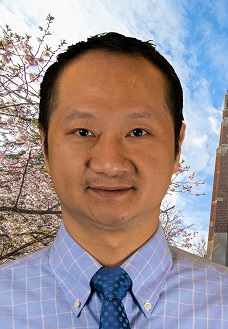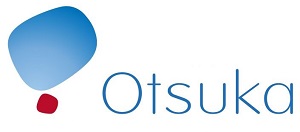Editor's Note
VOLUME 41, NO. 2 • June 2024

Fei Sun, IPA Bulletin Editor-in-Chief
We would like to extend our gratitude to Dr. Tzung-Jeng Hwang for his six years of dedicated services as the Editor-in-Chief. It is my honor to take up the mantle from him and serve as the editor of this newsletter. While I am committed to maintaining the high standards of our existing sections, I am also eager to welcome new ideas that could enrich the contents in the Bulletin and explore innovative ways to connect with our members.
Whether you are entering summer or winter, June promises to be a relaxing and exciting month. Moreover, June is particularly thrilling as the IPA gears up for the International Congress program in Buenos Aries this September. In this issue, our president, Prof. Anne Margriet Pot, updates us on the progress of the International Congress program, which includes six plenary sessions affirmed and many more abstracts to come. I would like to reiterate Anne Margriet’s motto of “being connected”. We are excited to “be connected’ with numerous IPA members and colleagues worldwide in person this September, where we can share experiences and enjoy our time together.
In the "International Psychogeriatrics Review Column," we usually focus on articles from International Psychogeriatrics. However, this edition features a submission from Ms. Wu (University of Texas at Austin in the USA) who reviewed a paper published in Disability and Rehabilitation: Assistive Technology. The article, entitled "A Thematic Review on Therapeutic Toys and Games for the Elderly with Alzheimer’s Disease" by You et al. (2024), presents promising evidence that therapeutic toys and games are helpful in the detection and evaluation of cognitive decline, and in the interventions designed to enhance cognitive functioning and emotional well-being. However, the effect sizes of these interventions were neither reported nor synthesized, highlighting a significant area for future research.
In the "Research and Practice" section, we feature four articles, while "Around the World" contains two. Within "Research and Practice," two articles explore new potential treatments for Alzheimer's disease. Dr. Lin from National Taiwan University discusses a clinical trial where focused ultrasound was used to enhance the effectiveness of aducanumab in clearing amyloid plaques by facilitating the opening of the blood-brain barrier. Another innovative approach, introduced by Drs. Sader and Khoury from the American University of Beirut, involves stem cell therapy aimed at combating Alzheimer's disease at the preclinical stage, though currently tested only in animal models with anticipated potential transmission risks. The remaining two articles address the issues of loneliness and social isolation among older adults, prevalent during and post the COVID-19 pandemic. Dr. Valzolgher from Paracelsus Medical Private University highlights the nuanced differences between social isolation and loneliness, urging the development of strategies to mitigate behavioral and environmental risks. Meanwhile, Dr. Thianthong and her team at Chiang Mai University discuss how the practice of meditation can enhance awareness of one’s feelings, foster positive coping mechanisms, and build resilience, thereby alleviating loneliness.
In the "Around the World" section, Dr. Xia from the Shanghai Mental Health Hospital discusses the development of the geriatric psychiatric department in mainland China, highlighting the challenges and opportunities in the field. She presented the efficacy of a three-tiered approach piloted in Shanghai aimed at addressing the varying mental health needs of older adults in the community. Additionally, Dr. Li has accepted the role of Deputy Editor for the "Research and Practice" section, where she will be responsible for soliciting reviews of articles published in International Psychogeriatrics. Moreover, Mr. Cohen, a renowned advocate for the use of music in dementia care, shares insights based on his extensive experience in the field. His contribution marks the beginning of a new subsection under "Around the World," focusing on non-pharmaceutical interventions for mental health globally. In upcoming issues, we plan to explore the practice of music-based interventions in different countries, further enriching our understanding and application of these vital therapeutic approaches.
Like other channels of the IPA, including our educational programs (such as webinars, debate series, and journal clubs), the association’s journal, and the International Congress program, the IPA Bulletin serves as a valuable platform for connecting our members. We encourage you to actively engage with IPA community in a manner that feels comfortable to you. In particular, we invite you to contribute to the IPA Bulletin by sharing your scholarly work, practice experiences, and advocacy efforts; your voices are highly valued and appreciated globally. Please feel free to reach out to us at IPABulletin@ipa-online.org
Fei Sun (Ph.D., MSW, MA)
IPA Bulletin Editor-in-Chief









